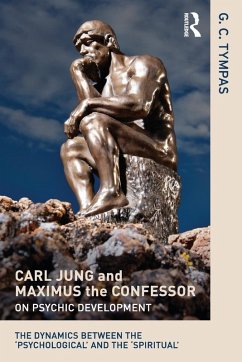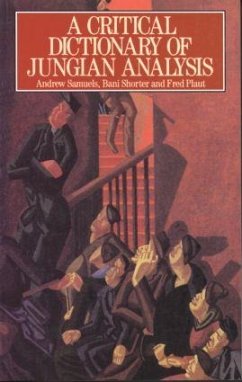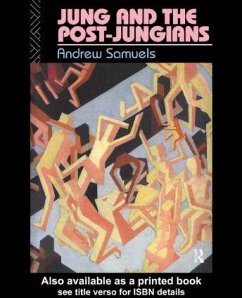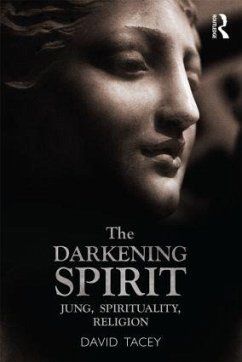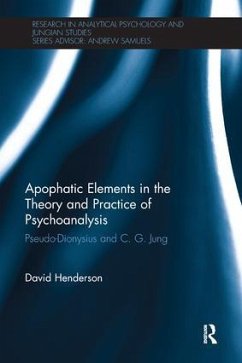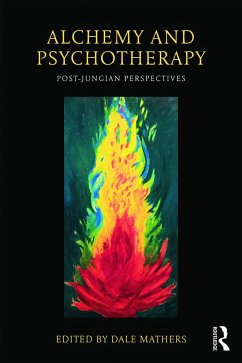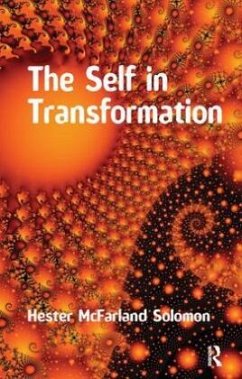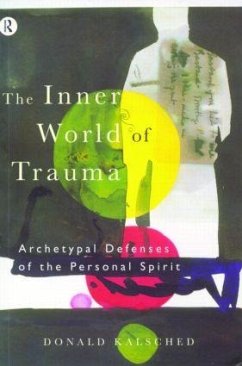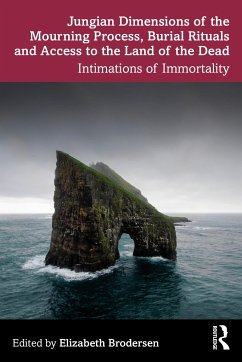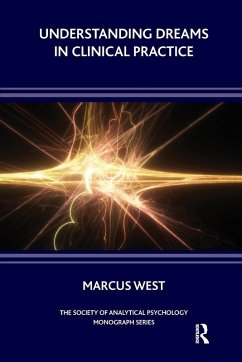
Carl Jung and Maximus the Confessor on Psychic Development
The dynamics between the 'psychological' and the 'spiritual'
Versandkostenfrei!
Versandfertig in 6-10 Tagen
186,99 €
inkl. MwSt.
Weitere Ausgaben:

PAYBACK Punkte
93 °P sammeln!
In what ways does psychological development differ from spiritual development and psychological experience from spiritual experience?Bringing together two disparate theories under a trans-disciplinary framework, G. C. Tympas presents a comparison of Carl Jung's theory of psychic development and Maximus the Confessor's model of spiritual progress. An 'evolutional' relationship between the 'psychological' and the 'spiritual' is proposed for a dynamic interpretation of spiritual experience.Carl Jung and Maximus the Confessor on Psychic Development offers a creative synthesis of elements and direc...
In what ways does psychological development differ from spiritual development and psychological experience from spiritual experience?
Bringing together two disparate theories under a trans-disciplinary framework, G. C. Tympas presents a comparison of Carl Jung's theory of psychic development and Maximus the Confessor's model of spiritual progress. An 'evolutional' relationship between the 'psychological' and the 'spiritual' is proposed for a dynamic interpretation of spiritual experience.
Carl Jung and Maximus the Confessor on Psychic Development offers a creative synthesis of elements and directions from both theories and further explores:
- Jung's views on religion in a dialogue with Maximus' concepts
- The different directions and goals of Jung's and Maximus' models
- Jung's 'Answer to Job' in relation to Maximus' theory of 'final restoration'.
Tympas argues that a synthesis of Jung's and Maximus'models comprises a broader trans-disciplinary paradigm of development, which can serve as a pluralistic framework for considering the composite psycho-spiritual development.
Constructively combining strands of differing disciplines, this book will appeal to those looking to explore the dialogue between analytical psychology, early Christian theology and Greek philosophy.
Bringing together two disparate theories under a trans-disciplinary framework, G. C. Tympas presents a comparison of Carl Jung's theory of psychic development and Maximus the Confessor's model of spiritual progress. An 'evolutional' relationship between the 'psychological' and the 'spiritual' is proposed for a dynamic interpretation of spiritual experience.
Carl Jung and Maximus the Confessor on Psychic Development offers a creative synthesis of elements and directions from both theories and further explores:
- Jung's views on religion in a dialogue with Maximus' concepts
- The different directions and goals of Jung's and Maximus' models
- Jung's 'Answer to Job' in relation to Maximus' theory of 'final restoration'.
Tympas argues that a synthesis of Jung's and Maximus'models comprises a broader trans-disciplinary paradigm of development, which can serve as a pluralistic framework for considering the composite psycho-spiritual development.
Constructively combining strands of differing disciplines, this book will appeal to those looking to explore the dialogue between analytical psychology, early Christian theology and Greek philosophy.





